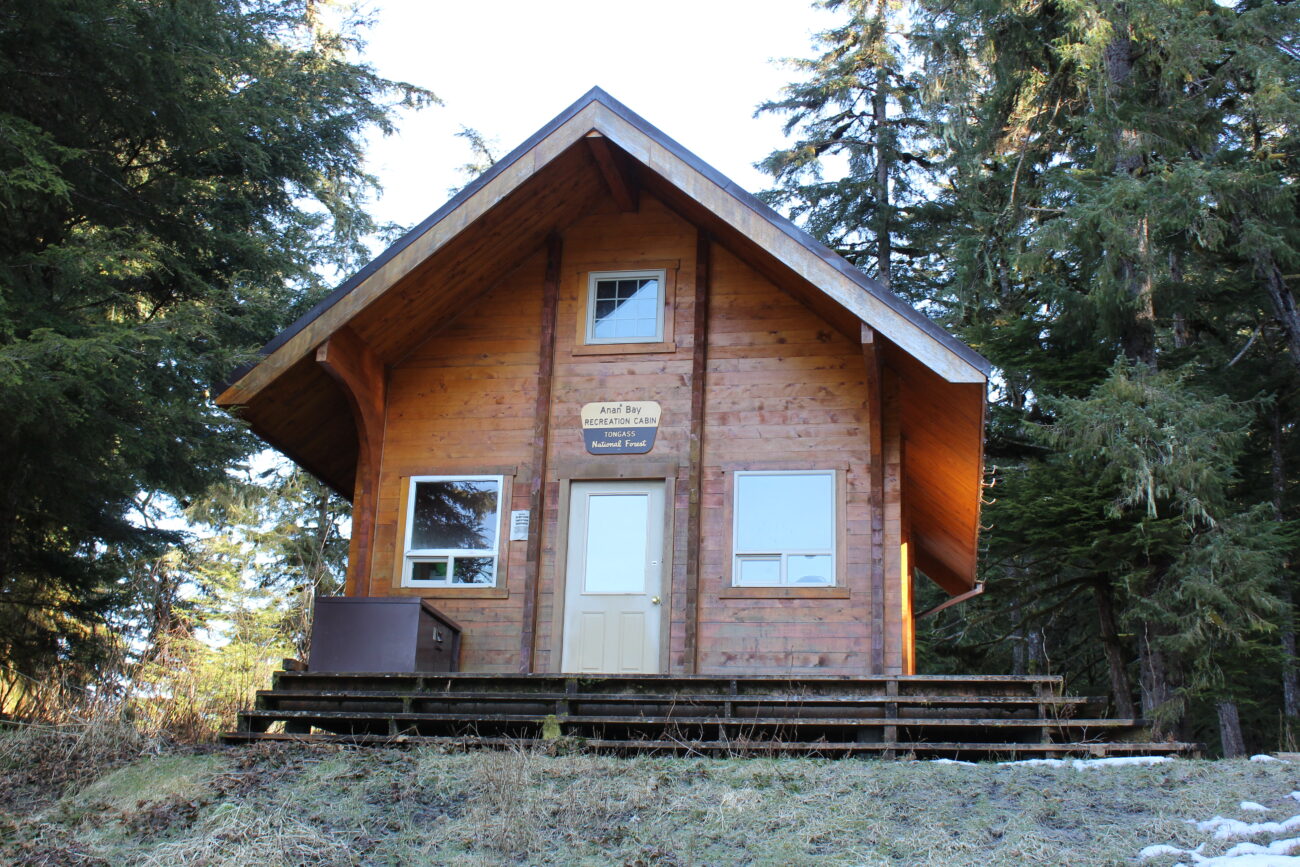
The U.S. Forest Service decided where they will build seven new recreation cabins in Southeast Alaska within the next two years. Some will be on the road system in the Tongass National Forest for easier access. It’s part of an effort to bring 25 new cabins to Alaska’s national forests.
Although eight cabins are eventually planned for the Wrangell and Petersburg districts, they will build just two in 2025. One cabin will be near Long Lake on Wrangell Island, which they’re currently calling Little Lakes. It will be renamed with a Lingít name.
The other site, Woodpecker Cabin, will be on Petersburg’s Mitkof Island, along Woodpecker Cove Road on the southwest side of the island.
Tory Houser is the recreational manager for the Wrangell and Petersburg Forest Service districts. She said that the Forest Service has prioritized building just two cabins right in the two districts.
“Every district wants to have a new cabin and we don’t have the funding to do hundreds of new cabins,” she said. “So we do have to go through some kind of a process to determine which ones are going to be most valuable, serving people and meeting all the demands.”
In 2025, the U.S. Forest Service will build two other cabins in the Tongass National Forest – a cabin near Perseverance Trail near Ketchikan and one at False Bay in Hoonah. Also, one at Signal Creek Campground in Ketchikan, Mendenhall Campground in Juneau and El Capitan Interpretive Site on Prince of Wales Island are set to be constructed in 2024.
People prefer cabins with easy road and boat access
The cabins are part of the Alaska Cabins Project, which plans to bring 25 new cabins to the Tongass and Chugach National Forests.
Through public outreach, the Forest Service found that people prefer to use cabins where there’s easy access by road or boat. And both cabins will be bigger and more accessible for people with different abilities. They’ll be near recreational opportunities like fishing and hiking, and also have significant covered porches.
Houser said Wrangell students helped design the cabin at the Little Lakes site.
“We brought some students out from the high school here in Wrangell,” she said. “They’re part of a group called T3 Alliance and they used drones to provide us with some footage of the Little Lakes area. Then they made these little proposals of how they would build the cabin in the outhouse and how they would orient it.”
The landscape architects working on the project took the middle and high school students’ drone footage and they’re using it in the official design for Little Lakes.
Besides the two new cabins, the Forest Service also plans to repair a cabin in each district – West Point Cabin, located about 24 miles by boat from Petersburg in 2025 and the popular Anan Bay cabin, at the Anan Wildlife Observatory about 30 miles southeast of Wrangell, in 2024. A tree destroyed its roof last year, rendering it unusable.
It all comes down to funding
The federal Bipartisan Infrastructure Law funds $14.4 million for the Alaska Cabins Project. The Forest Service’s partner, the National Forest Foundation, also gave another $3.7 million.
Jason Anderson, with the Forest Service in Petersburg, said the cabins that get built on the Tongass and Chugach will ultimately depend on funding.
“Sometimes what we find in these cabin projects is there’s certainly deals that we want to meet that are really either excessively expensive or just operationally impossible,” Anderson said.
He said they need to make sure it’s safe, efficient and easy to maintain – and that takes time. So there’s uncertainty as to how long it will take from planning to when each cabin is ready for use. It also depends on when the local contractors they hire can complete the projects.
Above all, Anderson said this project is important for Alaskans because wildlife and recreation are essential in the Southeast Alaskan culture.
“We’re definitely excited to be working on the project,” he said. “We know Alaskans love their cabins. Our goal through the project with the National Forest Foundation is to try to put at least one cabin on all of our ranger districts so that all of our communities and user groups get to experience a new one.”
Anderson said that Alaska’s cabin project will support the existing workforce, as it will have a local economic influence, using local wood and resources.












